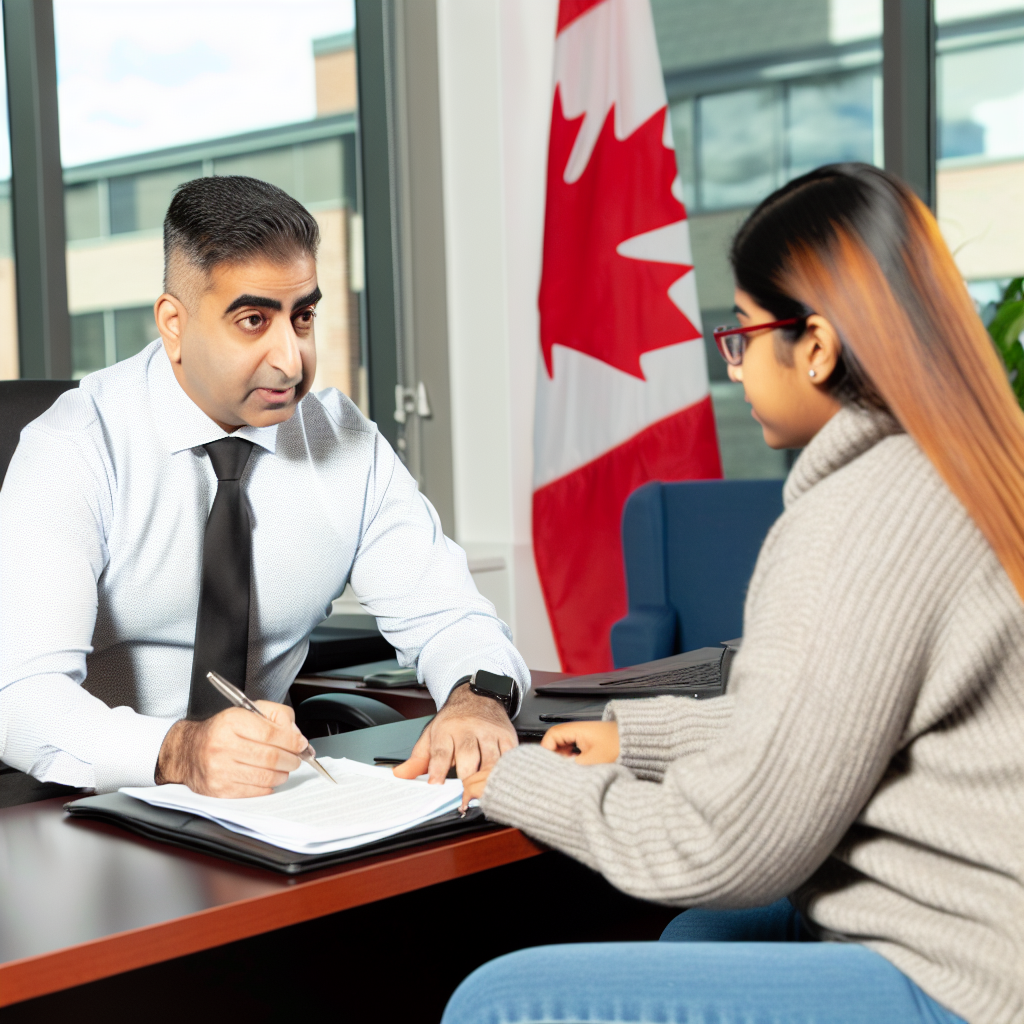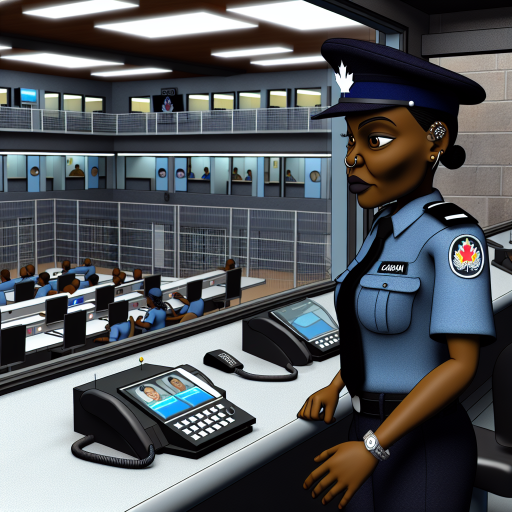Overview of the Role of Veterans Affairs Officers
Essential Responsibilities
Veterans Affairs Officers play a crucial role in assisting veterans.
They provide guidance on accessing benefits and services.
Additionally, they help navigate the complexities of the VA system.
These officers advocate for veterans’ needs and rights.
They ensure veterans understand their eligibility for various programs.
Support and Resources
Veterans Affairs Officers connect veterans to vital resources.
These resources include medical care, education, and housing assistance.
Furthermore, they offer support for mental health services.
This holistic support improves veterans’ well-being significantly.
Advocacy and Representation
These officers advocate for policy changes beneficial to veterans.
They represent veterans’ interests at local, state, and national levels.
Moreover, they work with community organizations to enhance outreach.
This effort raises awareness about veterans’ issues in society.
Building Relationships
Veterans Affairs Officers build strong relationships with veterans.
They listen to individual concerns and needs effectively.
This personalized approach fosters trust and engagement.
Consequently, veterans feel more supported and connected.
Training and Development
Continuous training is essential for Veterans Affairs Officers.
They stay updated on changes in laws and policies.
Moreover, they enhance their communication and advocacy skills.
This ensures they provide the best possible support to veterans.
Historical Context: The Need for Veterans Support
Emergence of Veteran Support Systems
After World War I, nations recognized the necessity of supporting veterans.
Many soldiers returned home with physical and mental health issues.
This situation highlighted the importance of organized support systems.
As a result, governments began to establish veterans affairs offices.
Unlock Your Career Potential
Visualize a clear path to success with our tailored Career Consulting service. Personalized insights in just 1-3 days.
Get StartedPost-World War II Developments
World War II created a massive influx of veterans seeking assistance.
This surge intensified the call for comprehensive veteran care services.
Consequently, the G.I. Bill was introduced to aid veterans’ reintegration.
This legislation provided education, housing, and employment benefits.
Modern Challenges for Veterans
Today, veterans still face significant challenges in adjusting to civilian life.
Many struggle with mental health issues, such as PTSD.
Additionally, economic hardships often complicate their transitions.
As a result, dedicated veterans affairs officers play a crucial role.
Increasing Awareness and Advocacy
Recently, there has been a growing awareness of veterans’ needs.
Public campaigns and advocacy groups emphasize veteran support.
This cultural shift has encouraged more robust funding for veteran services.
Veterans affairs officers are essential in navigating these resources.
Key Responsibilities of Veterans Affairs Officers
Supporting Claims and Benefits
Veterans Affairs Officers assist veterans in filing claims for benefits.
They help navigate complex paperwork and legal requirements.
Moreover, they provide guidance on eligibility for various programs.
This support is crucial for veterans seeking financial aid.
Providing Counseling Services
Veterans Affairs Officers offer counseling to veterans in need.
They discuss mental health resources and options for treatment.
Furthermore, they facilitate workshops on stress management.
These services promote overall well-being among veterans.
Advocating for Veteran Rights
Advocacy is a key role of Veterans Affairs Officers.
They represent veterans in discussions about policy changes.
Additionally, they work with local and national organizations.
This collaboration ensures veterans’ needs are prioritized.
Facilitating Community Engagement
Veterans Affairs Officers engage veterans with community resources.
They organize events to encourage social connections.
In addition, they promote volunteer opportunities for veterans.
Such engagement fosters a sense of belonging and support.
Coordinating Educational Opportunities
These officers assist veterans in pursuing educational goals.
They provide information about available scholarships and grants.
Moreover, they help connect veterans with training programs.
Professional development enhances career prospects for veterans.
Uncover the Details: Day in the Life of a Correctional Officer in Canada
Impact of Veterans Affairs Officers on Mental Health Support
Role in Connecting Veterans with Resources
Veterans Affairs Officers play a crucial role in connecting veterans with essential mental health resources.
They guide veterans through the complexities of the healthcare system.
They help veterans find appropriate counseling services and support groups.
Additionally, these officers facilitate access to rehabilitation programs.
Providing Advocacy and Support
Veterans Affairs Officers advocate for the mental health needs of veterans.
They ensure that veterans receive the benefits they deserve.
Moreover, these officers provide emotional support during challenging times.
They understand the unique struggles faced by veterans returning to civilian life.
Crisis Intervention and Immediate Assistance
In crisis situations, Veterans Affairs Officers provide immediate assistance.
They are trained to assess the mental health needs of veterans in distress.
Veterans can rely on them for urgent intervention when necessary.
This timely support can prevent further mental health crises.
Creating Awareness and Reducing Stigma
These officers play a significant part in raising mental health awareness among veterans.
They work to reduce the stigma surrounding mental health issues.
Through educational programs, they promote the importance of seeking help.
Furthermore, they encourage open discussions about mental health challenges.
Monitoring Progress and Follow-Up
Veterans Affairs Officers monitor the mental health progress of veterans.
They conduct regular follow-ups to assess ongoing needs.
By tracking progress, they can adjust care plans accordingly.
This ongoing support helps veterans maintain their mental well-being.
Learn More: How Ombudsmen Build Trust Between Parties
The Process of Transitioning from Military to Civilian Life
Understanding the Transition Process
Transitioning from military to civilian life can be challenging.
Many veterans experience significant changes during this phase.
Additionally, they often find themselves navigating uncharted waters.
Support from Veterans Affairs Officers can ease this transition.
Key Challenges Faced by Veterans
One common challenge is the adjustment to civilian culture.
Veterans may struggle with social interactions and communication styles.
Furthermore, finding employment can be daunting.
Job markets can feel overwhelming and competitive.
Finally, some veterans face emotional and mental health issues.
How Veterans Affairs Officers Can Help
Veterans Affairs Officers provide essential guidance during this transition.
They assist in navigating the VA system effectively.
Additionally, they offer resources for career counseling and job placement.
Moreover, they connect veterans with mental health services.
This support can significantly improve veteran well-being.
Steps for a Successful Transition
First, veterans should assess their skills and interests.
Next, they can explore potential career paths that align with those skills.
Additionally, creating a resume tailored to civilian jobs is crucial.
Networking with other veterans can provide valuable insights.
Finally, setting achievable goals can help maintain focus and motivation.
Explore Further: Ombudsman Career Pathways and Opportunities

Case Studies: Success Stories of Veterans Assisted by Officers
Success Story of Mark Thompson
Mark Thompson served in the Army for over a decade.
After returning, he faced challenges in finding stable employment.
Luckily, a Veterans Affairs Officer connected him to resources.
They helped him refine his resume and develop interview skills.
Through this support, Mark secured a job in his desired field.
Today, he credits the officer for his successful transition.
Journey of Linda Roberts
Linda Roberts is a former Navy medic who struggled with PTSD.
She reached out to a local Veterans Affairs Officer for assistance.
The officer provided counseling resources tailored to her needs.
With their help, Linda joined a support group for veterans.
This network empowered her to share her experiences and heal.
Now, she advocates for mental health awareness among veterans.
Tommy Hernandez’s Path to Education
Tommy Hernandez enlisted in the Marine Corps after high school.
Upon exiting, he desired to pursue higher education.
A dedicated Veterans Affairs Officer guided him through the GI Bill process.
They ensured he understood his benefits and enrollment steps.
Thanks to this guidance, Tommy is now a university student.
His goals now include earning a degree in civil engineering.
Emily Nguyen’s Housing Success
Emily Nguyen served in the Air Force and faced housing insecurity.
She contacted a Veterans Affairs Officer who specialized in housing assistance.
They helped her apply for transitional housing programs.
Emily successfully secured a stable home for herself and her children.
She feels grateful for the officer’s unwavering support during this process.
Now, Emily helps other veterans facing similar housing challenges.
These success stories highlight the immense value of Veterans Affairs Officers.
They provide essential guidance and support during difficult transitions.
Through their efforts, many veterans reclaim their lives and thrive.
Ultimately, investing in these resources is crucial for our veterans.
Uncover the Details: How Canada’s Focus on Diversity is Reshaping Public Service Careers
Challenges Faced by Veterans and How Officers Address Them
Mental Health Issues
Many veterans face mental health challenges after serving.
Post-Traumatic Stress Disorder (PTSD) is particularly common.
Veterans Affairs Officers play a crucial role in addressing these issues.
They provide access to mental health resources.
Additionally, they offer counseling and support services.
Transitioning to Civilian Life
Transitioning from military to civilian life can be difficult.
Many veterans experience uncertainty about job opportunities.
Veterans Affairs Officers assist with career counseling.
They facilitate job placement services for veterans.
Furthermore, they provide resources for resume building.
Accessing Benefits
Navigating the benefits system can overwhelm many veterans.
Veterans often struggle to understand their entitlements.
Veterans Affairs Officers help clarify benefit options.
They guide veterans through the application process.
Officers also advocate for veterans facing claims challenges.
Social Isolation
Social isolation is a significant issue for some veterans.
Many veterans find it hard to connect with their communities.
Veterans Affairs Officers create programs to encourage social interaction.
They help veterans find local support groups.
These initiatives foster a sense of camaraderie and belonging.
Housing Stability
Housing stability is critical for veterans’ well-being.
Some face homelessness or housing insecurity after service.
Veterans Affairs Officers assist in finding affordable housing.
They provide information about housing assistance programs.
Additionally, they connect veterans with local resources.
Future Directions: Enhancing the Role of Veterans Affairs Officers
Strengthening Support Systems
Veterans Affairs officers play a crucial role in providing assistance to veterans.
They act as navigators through the complex benefits system.
To enhance this support, training programs need to be updated regularly.
Moreover, officers should receive ongoing education on legal changes affecting veterans.
This continuous training will ensure officers deliver accurate information.
Expanding Community Engagement
Engaging with the community is essential for Veterans Affairs officers.
Strengthened community ties can lead to better support networks.
Officers should host informational sessions in local communities.
Additionally, collaboration with veteran organizations can boost outreach efforts.
Community events could also create platforms for veterans to share experiences.
Utilizing Technology Effectively
Technology presents new opportunities for enhancing veterans’ support services.
Implementing better digital tools can streamline communication between veterans and officers.
Veterans can benefit from mobile applications that connect them with resources.
Furthermore, online training for officers can improve their accessibility and knowledge.
This approach will also foster independence among veterans seeking assistance.
Promoting Mental Health Resources
Addressing mental health is vital for veterans’ overall well-being.
Veterans Affairs officers must proactively promote available mental health services.
Hosting workshops on mental health awareness can empower veterans.
Furthermore, partnerships with mental health organizations can enhance service delivery.
By prioritizing mental health, officers can create a supportive environment.
Improving Benefits Awareness
Many veterans are unaware of the benefits available to them.
Officers should focus on raising awareness of these essential resources.
Interactive sessions can help veterans understand their entitlements better.
In addition, distributing informative materials can aid in this effort.
Promoting benefits education will lead to a more informed veteran population.
Additional Resources
VA.gov Home | Veterans Affairs
Federal Benefits for Veterans, Dependents and Survivors – VA.gov




